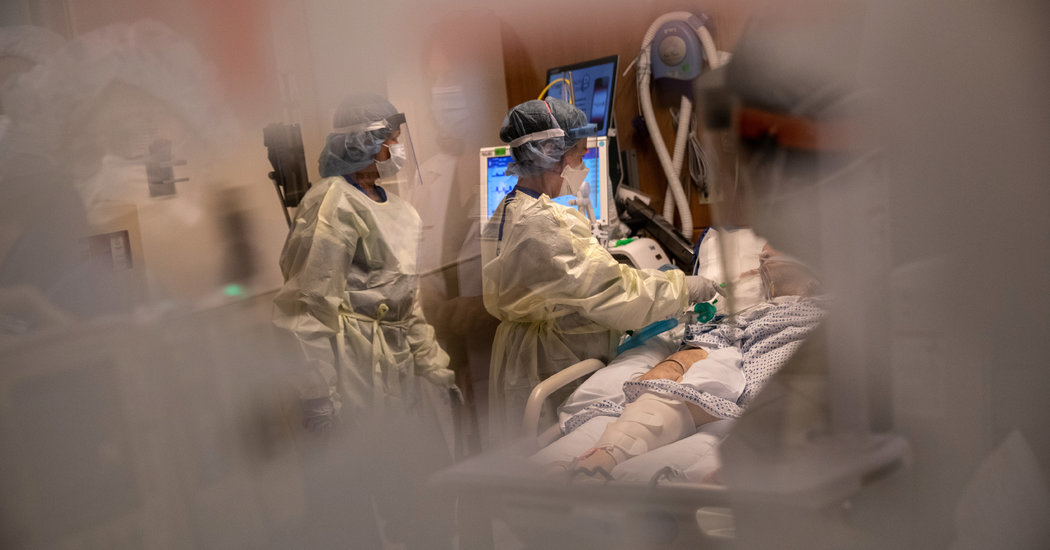It used to be taken for granted that old people would get confused and disoriented in the hospital. It is not a minor problem. Delirium, as the condition is called, can keep people in the hospital longer, inhibit treatment and even increase the likelihood of death.
Then researchers began to understand that this state, in which patients do not know where they are, do not recognize their loved ones and sometimes even hallucinate, was often caused by what happened in hospitals — overmedication, a lack of sleep and a lack of food, fluids or mobility. (It’s easy to overlook someone too dazed to ring a buzzer.) Delirium can also accelerate lasting declines in brain function in those with normal brains or with dementia.
For the past 30 years we have made great strides in reducing delirium by focusing on humanistic care and minimizing sedating drugs. One of the most effective preventive measures is keeping patients from feeling isolated. Just the presence of a family member or volunteer provides comfort and orientation.
But Covid-19 is reversing those gains.
Scores of colleagues from around the world have contacted me, reporting a rise in delirium of up to 70 percent because of Covid-19. It is occurring in both younger and older patients. Because of the restrictions on visitation and care to limit infection, Arjen Slooter, president of the European Delirium Association, told me, “it’s difficult to provide the humanistic care necessary to prevent delirium.” Dr. Slooter practices in the Netherlands, a world leader in geriatric care, but even there, he said, “All our patients are delirious, just like 20 years ago.”
With this regression, patients are routinely being managed with strong sedatives and physical restraints (wrist cuffs, Posey vests, bed alarms). There is a sharp increase in the use of strong tranquilizers for anxiety, agitation and delirium. With no-visitor policies, families are absent, increasing the likelihood that patients grow fearful, agitated and confused.
If you could design a health care system that would generate delirium, you would design exactly the system we have with Covid-19: where patients are socially isolated, deprived of human comfort and communication; where staffs are stressed, rushed, wearing protective equipment that obscures their faces and muffles their voices; where they are instructed to minimize visits to patients’ rooms since protective equipment is scarce; where short-acting, less toxic drugs like propofol have run out, so long-acting, more toxic drugs are used; and where staffing shortages are so severe that nurses feel they can deliver only the bare necessities of care.
In hot spots, my colleagues are dealing with unimaginable pressure. It’s understandable that physicians and nurses feel they cannot spare the extra minutes needed to calm a frightened older adult. But sedatives and restraints not only make delirium and poor outcomes more likely but also prevent staffs from using non-pharmacologic strategies that improve patients’ overall health.
The Hospital Elder Life Program, which I created in 1993, has prevented delirium in clinical trials. Under the program, adopted by the American Geriatrics Society and used by hundreds of hospitals worldwide, trained volunteers help reorient patients three times a day and provide activities like reading the newspaper and playing games. They assist with meals, drinking and walking. Evening volunteers provide massage and relaxation to enhance sleep without medication.
Even in the face of isolation, staffs can apply more humanistic measures. If able, patients should be encouraged to walk safely in their room, with a cane or walker if needed. If unable to walk, the patient can be instructed to exercise in bed. Patients should be provided with crosswords, games, Sudoku. They should have their glasses, hearing aids and dentures, so that they can see, hear and eat. Their favorite music, audiobooks and recorded messages from family can be calming. To avoid sleeping pills, staffs should raise shades and open blinds during the daytime and provide a dark, quiet room at night without interruptions; ear plugs, eye masks and melatonin can help.
No-visitor policies have been a widespread response by hospitals, with some exceptions. Yet family caregivers for patients with or at risk for delirium (those with dementia, for example) shouldn’t be classified as “visitors” — they are essential care providers. Their presence helps the patient and lessens demands on the staff. They should be provided protective equipment and training, and allowed in the rooms.
These approaches ultimately benefit public health by preventing bad outcomes and freeing up hospital beds more quickly, thus permitting more patients to receive care. And they would head off the crisis of conscience facing health care professionals, who know they are not providing adequate care. With careful management, delirium can be prevented or lessened, and we need to try because it will save minds and lives.
Over the past decade, we have made tremendous advances in recognizing the fundamental human rights of our patients. Chemical and physical restraints, administered without consent, rob individuals of their personhood and autonomy. There are many cases where a comforting word or touch, or a brief remote connection to family, may have offset the need for these potentially harmful approaches, which can substantially delay recovery and increase mortality far beyond that of Covid-19 itself.
Our heroic health care professionals are dealing with heart-wrenching crises in this pandemic. I remember well my very first day as a physician when I was called to a “code blue,” a true medical emergency. As I ran into the room, a wise senior colleague said, “Sharon, the first thing to do at a code is to check your own pulse.” He meant to slow down, calm myself and carefully assess the situation.
We as a profession need to slow down and take our own pulse, lest we make grievous errors on a grand scale. As some hospitals have done for patients with delirium or dementia, we must allow caregivers back to the bedside and commit to person-centered, humanistic care. That is the necessary standard, pandemic or no pandemic. It is the right thing to do and it will save lives.
Sharon K. Inouye (@sharon_inouye) is a geriatrician at Hebrew SeniorLife in Boston, founder of the Hospital Elder Life Program and a professor at Harvard Medical School.
The Times is committed to publishing a diversity of letters to the editor. We’d like to hear what you think about this or any of our articles. Here are some tips. And here’s our email: [email protected].
Follow The New York Times Opinion section on Facebook, Twitter (@NYTopinion) and Instagram.


















